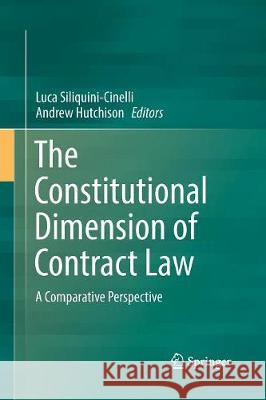The Constitutional Dimension of Contract Law: A Comparative Perspective » książka
topmenu
The Constitutional Dimension of Contract Law: A Comparative Perspective
ISBN-13: 9783319842530 / Angielski / Miękka / 2018 / 324 str.
Kategorie:
Kategorie BISAC:
Wydawca:
Springer
Język:
Angielski
ISBN-13:
9783319842530
Rok wydania:
2018
Wydanie:
Softcover Repri
Ilość stron:
324
Waga:
0.49 kg
Wymiary:
23.39 x 15.6 x 1.85
Oprawa:
Miękka
Wolumenów:
01
Dodatkowe informacje:
Wydanie ilustrowane











